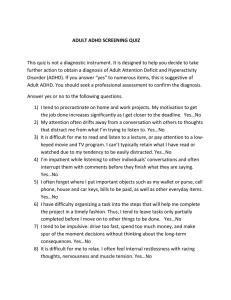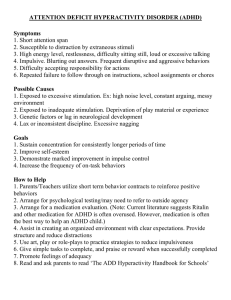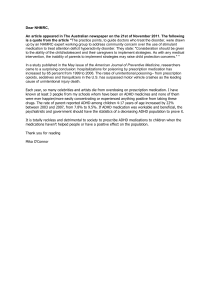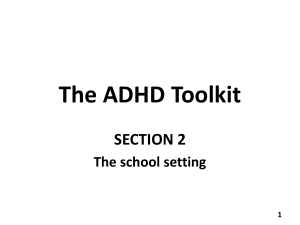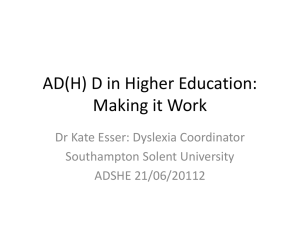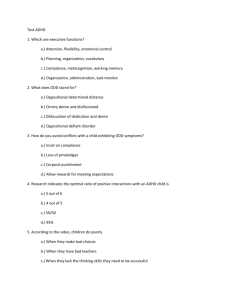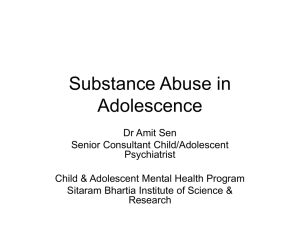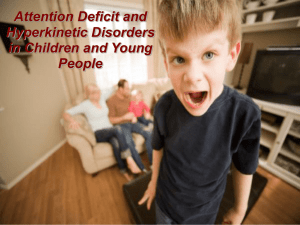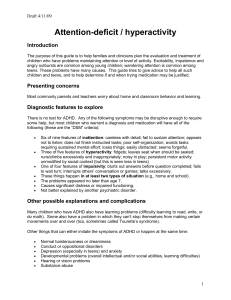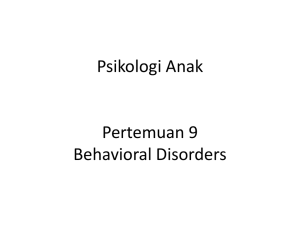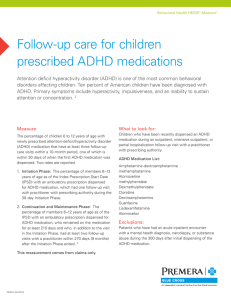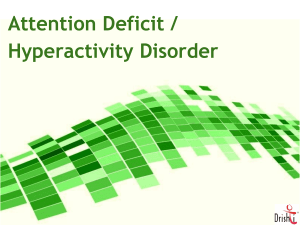ATTENTION DEFICIT HYPERACTIVITY DISORDER What is it?
advertisement
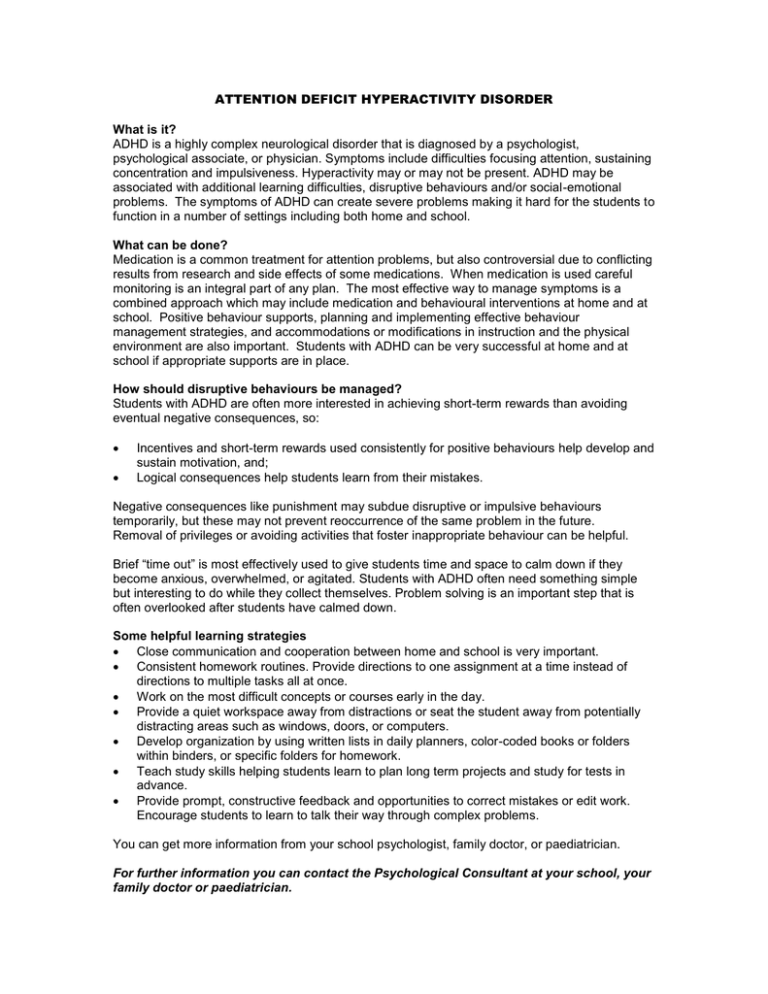
ATTENTION DEFICIT HYPERACTIVITY DISORDER What is it? ADHD is a highly complex neurological disorder that is diagnosed by a psychologist, psychological associate, or physician. Symptoms include difficulties focusing attention, sustaining concentration and impulsiveness. Hyperactivity may or may not be present. ADHD may be associated with additional learning difficulties, disruptive behaviours and/or social-emotional problems. The symptoms of ADHD can create severe problems making it hard for the students to function in a number of settings including both home and school. What can be done? Medication is a common treatment for attention problems, but also controversial due to conflicting results from research and side effects of some medications. When medication is used careful monitoring is an integral part of any plan. The most effective way to manage symptoms is a combined approach which may include medication and behavioural interventions at home and at school. Positive behaviour supports, planning and implementing effective behaviour management strategies, and accommodations or modifications in instruction and the physical environment are also important. Students with ADHD can be very successful at home and at school if appropriate supports are in place. How should disruptive behaviours be managed? Students with ADHD are often more interested in achieving short-term rewards than avoiding eventual negative consequences, so: Incentives and short-term rewards used consistently for positive behaviours help develop and sustain motivation, and; Logical consequences help students learn from their mistakes. Negative consequences like punishment may subdue disruptive or impulsive behaviours temporarily, but these may not prevent reoccurrence of the same problem in the future. Removal of privileges or avoiding activities that foster inappropriate behaviour can be helpful. Brief “time out” is most effectively used to give students time and space to calm down if they become anxious, overwhelmed, or agitated. Students with ADHD often need something simple but interesting to do while they collect themselves. Problem solving is an important step that is often overlooked after students have calmed down. Some helpful learning strategies Close communication and cooperation between home and school is very important. Consistent homework routines. Provide directions to one assignment at a time instead of directions to multiple tasks all at once. Work on the most difficult concepts or courses early in the day. Provide a quiet workspace away from distractions or seat the student away from potentially distracting areas such as windows, doors, or computers. Develop organization by using written lists in daily planners, color-coded books or folders within binders, or specific folders for homework. Teach study skills helping students learn to plan long term projects and study for tests in advance. Provide prompt, constructive feedback and opportunities to correct mistakes or edit work. Encourage students to learn to talk their way through complex problems. You can get more information from your school psychologist, family doctor, or paediatrician. For further information you can contact the Psychological Consultant at your school, your family doctor or paediatrician.
